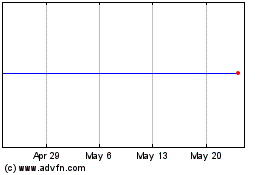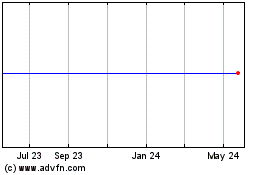2nd UPDATE: OSI Rejects $3.5 Billion Astellas Offer, Talks With Others
March 15 2010 - 2:44PM
Dow Jones News
OSI Pharmaceuticals Inc.'s (OSIP) board has rejected a $3.5
billion hostile takeover bid by Japan drug maker Astellas Pharma
Inc.'s (4503.TO, ALPMY) as too low, and has begun to talk with
other companies that could offer a higher price.
In its rejection of the $52-a-share offer, OSI cited
expectations for future sales of cancer drug Tarceva, its potential
in other multiple cancers, and the value of its product pipeline.
The rejection wasn't a surprise, as the Melville, N.Y.-based
company had snubbed a similar offer and had concluded that
Astellas's preliminary indication, at $55 to $57 a share, was also
too low.
Shares of OSI recently rose 32 cents to $57.98 after hitting a
five-year high earlier Monday.
Astellas responded Monday to the OSI rejection by reiterating
that its offer conveys "full and fair value" for OSI. Furthermore,
Astellas said it will nominate a full slate of directors for OSI's
coming shareholder meeting, which it traditionally holds in
June.
OSI said it is now "engaged in preliminary discussions with a
number of other parties, including major pharmaceutical companies,
regarding potential transactions," according to a regulatory
filing.
In an interview Monday, OSI Chief Executive Colin Goddard
declined to discuss any aspects of those talks. He expressed a
willingness to allow Astellas conduct due diligence, if it is
willing to sign a nondisclosure agreement.
After brushing aside overtures from Astellas for more than a
year, OSI in February offered to provide Astellas with certain
non-public information in exchange for Astellas signing a
nondisclosure agreement. According to OSI, Astellas never responded
to that offer and instead announced its intention to launch a
hostile offer earlier this month.
In deciding not to sign, Astellas has argued that the
nondisclosure agreement proposed by OSI contained a two-year
standstill agreement. The pact would prevent Astellas from
acquiring any securities of OSI or making any proposal to acquire
securities for a period of the agreement.
The current tender offer doesn't seem to have much chance of
success because the shares remain well above the tender offer and
OSI has a shareholder rights plan, a so-called poison pill, that
would block the success of the hostile offer.
Astellas has sued OSI and its directors to stop them from
getting in the way of the tender offer by preventing the use of the
poison pill. Astellas argued that any such move would be
"inconsistent with the directors' fiduciary duties."
On Monday, OSI's Goddard repeatedly highlighted that the
Astellas offer doesn't reflect "the unique scarcity value in the
mid-cap biotech space." His highlighting of the biotech deal
environment comes as several companies have been successful in
grabbing large premiums, and often generating interest from other
parties.
ImClone Systems rejected a bid from Bristol-Myers Squibb Co.
(BMY) and got a higher bid from Eli Lilly & Co. (LLY) in a $6.5
billion deal in 2008. More recently, Facet Biotech Corp. (FACT)
agreed to a takeover for $27 a share from Abbott Laboratories (ABT)
after rebuffing a $17-a-share hostile offer from Biogen Idec Inc.
(BIIB).
Although OSI is painting itself as a biotech company, Tarceva
and its entire pipeline are actually small-molecule drugs, which
are chemical compounds more commonly developed by the traditional
large pharmaceutical companies.
Both ImClone and Facet had biotech drugs, which are produced
from living organisms and are more attractive to suitors because
they offer better margins, a higher barrier of entry for
competition and, currently, no risk of generic threats. Many larger
drug makers have expressed a continued interest in acquiring such
drugs to help fill their struggling pipelines and replace
blockbuster drugs that will face generic competition in coming
years.
OSI's sole marketed product is Tarceva, which it sells with
Swiss drug giant Roche Holding AG (RHHBY, ROG.VX). The pill, used
to treat advanced forms of lung and pancreatic cancer, had
worldwide sales of $1.2 billion in 2009.
Its pipeline currently has one late-stage cancer treatment, two
early-stage cancer drugs and two mid-stage obesity/diabetes
treatments.
-By Thomas Gryta, Dow Jones Newswires; 212-416-2169;
thomas.gryta@dowjones.com
Osi Pharmaceuticals (NASDAQ:OSIP)
Historical Stock Chart
From Jun 2024 to Jul 2024

Osi Pharmaceuticals (NASDAQ:OSIP)
Historical Stock Chart
From Jul 2023 to Jul 2024
